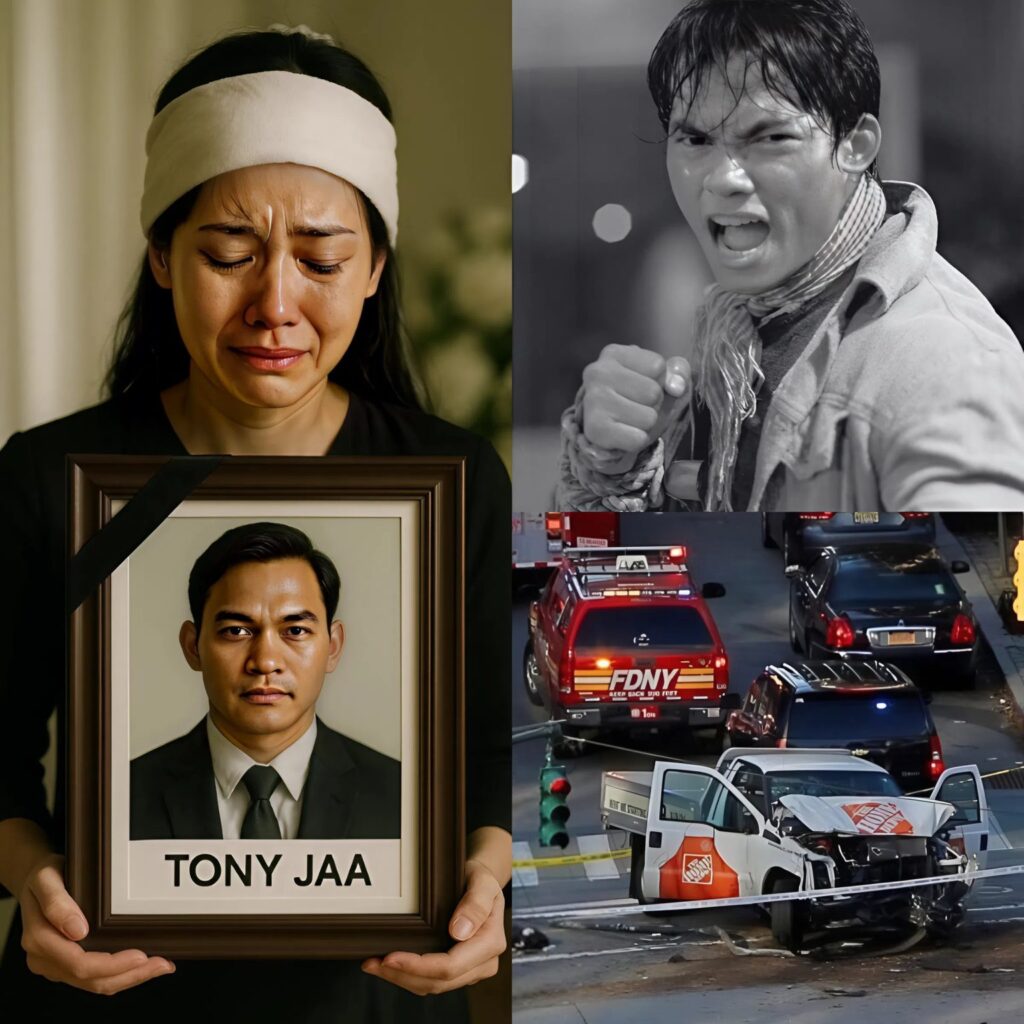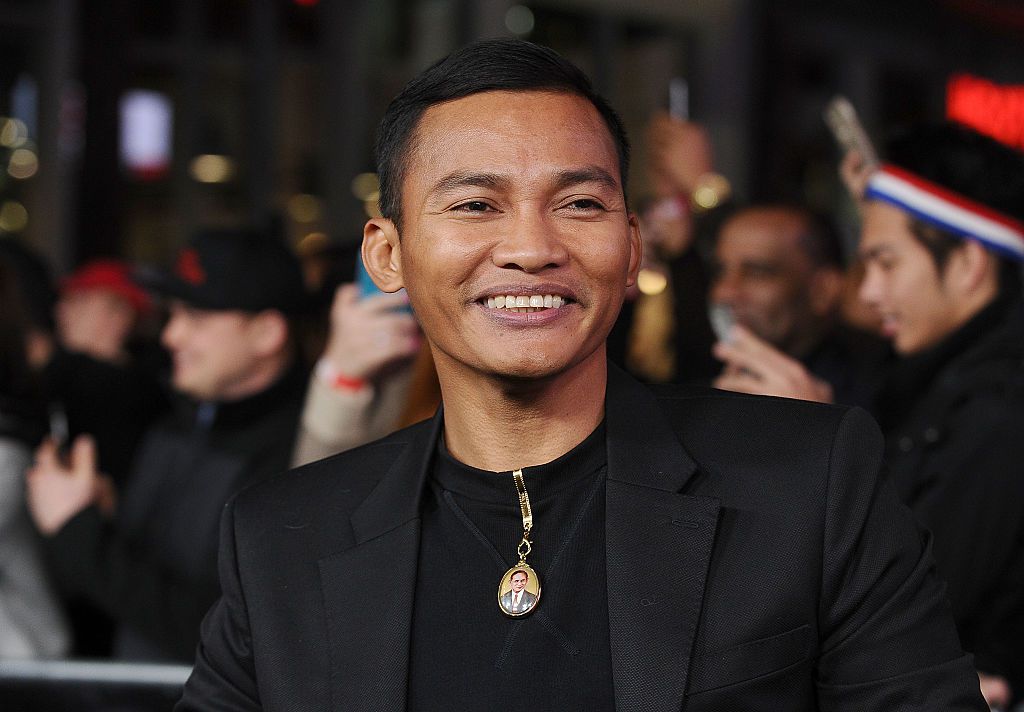Bangkok woke up in shock today. The usual hum of motorbikes and tuk-tuks along the congested expressways was pierced by sirens, flashing lights, and the grim voice of reality. A serious traffic accident claimed multiple lives before sunrise, and among those victims was a man whose name had become synonymous with Thailand’s pride on the world stage: Tony Jaa.
The official confirmation came just hours later—Tony Jaa, born Panom Yeerum, had tragically passed away at the age of 48. Known for his breathtaking martial arts stunts in
Ong-Bak and his Hollywood appearances, Jaa was more than an actor. He was a cultural bridge, a symbol of Thai resilience, and a living testament to the artistry of Muay Thai. His sudden death not only devastates fans worldwide but also raises deeper questions about Thailand’s roads, its safety crisis, and the fragile line between ordinary life and legend.

The Accident That Shattered Normalcy
According to police reports, the fatal collision occurred on the Sirat Expressway, one of Bangkok’s busiest elevated roads. At least five vehicles were involved: a cargo truck, a motorcycle, and three passenger cars. Heavy rainfall had reduced visibility, and initial investigations point to reckless driving and slippery conditions as contributing factors.
Emergency responders arrived within minutes. But for Jaa, seated in a private vehicle en route to what insiders say was a scheduled training session, it was too late. Despite frantic efforts by medics, he succumbed to his injuries at the scene.
Witnesses described the aftermath as “utter chaos”—twisted metal, shattered glass, and the eerie silence that follows catastrophe. Yet when news spread that one of the victims was Tony Jaa, disbelief swept across Thailand like a wave. This was a man who had leapt through fire on camera, fought dozens of men in choreographed battles, and hurled himself from buildings for his craft. To think that he could be taken by something as banal, as cruel, as a traffic accident—it felt unreal.
The Legend Who Put Thailand on the Map
To understand the magnitude of this loss, one must revisit Tony Jaa’s story. Born in 1976 in Surin Province, a rural area of northeastern Thailand, he grew up in poverty, watching elephants and dreaming of martial arts glory. Inspired by Bruce Lee, Jackie Chan, and Jet Li, Jaa began practicing Muay Thai at an early age. What set him apart was not only his skill but his obsession with precision.

He famously trained by leaping into haystacks, running on elephants, and practicing acrobatic flips on the dusty grounds of his village. Later, as a stuntman at a film studio, he honed his craft under master choreographer Panna Rittikrai, who became his mentor.
The breakthrough came in 2003 with Ong-Bak: Muay Thai Warrior. The film was raw, kinetic, and unlike anything the global audience had seen. Jaa performed every stunt himself—no wires, no CGI, just pure skill and daredevil courage. International critics hailed him as the next Bruce Lee, but for Thais, he was something even greater: proof that their martial art could stand shoulder to shoulder with the world’s best.
His follow-up films, including Tom-Yum-Goong and later Hollywood’s Fast & Furious 7, cemented his reputation. But Jaa always carried his culture with him, bowing before monks, dedicating films to Thailand, and speaking proudly of Muay Thai as more than just fighting—it was philosophy, discipline, and national identity.
The Global Outpouring of Grief
Within hours of confirmation, social media platforms exploded with tributes. Clips of his gravity-defying knees and elbows trended worldwide. Martial artists from across Asia, Hollywood co-stars, and fans posted heartfelt messages.
Vin Diesel, who worked with Jaa on Fast & Furious 7, wrote: “Tony wasn’t just a fighter. He was a soul full of kindness. I can’t believe he’s gone.” Donnie Yen called him “a true warrior who reminded us that action could still be pure.” Jackie Chan released a statement saying, “Tony carried the torch we all once held, and he lit it in a way uniquely his own. His loss is everyone’s loss.”
In Bangkok, fans gathered at the accident site, laying flowers and lighting candles. Some wept openly. For many, this wasn’t just about losing an actor—it was about losing a man who carried Thailand’s dignity abroad.
A Symbol Beyond Cinema
Why does Tony Jaa’s passing cut so deeply? Because he was more than a movie star. He was an embodiment of values that Thais hold dear: humility, loyalty, spirituality, and perseverance.

Unlike many celebrities who chased glamour, Jaa remained remarkably grounded. He often returned to his village, trained with local youths, and lived with a simplicity that belied his fame. He once said in an interview: “Without roots, a tree cannot grow. Without my family and my culture, I am nothing.”


